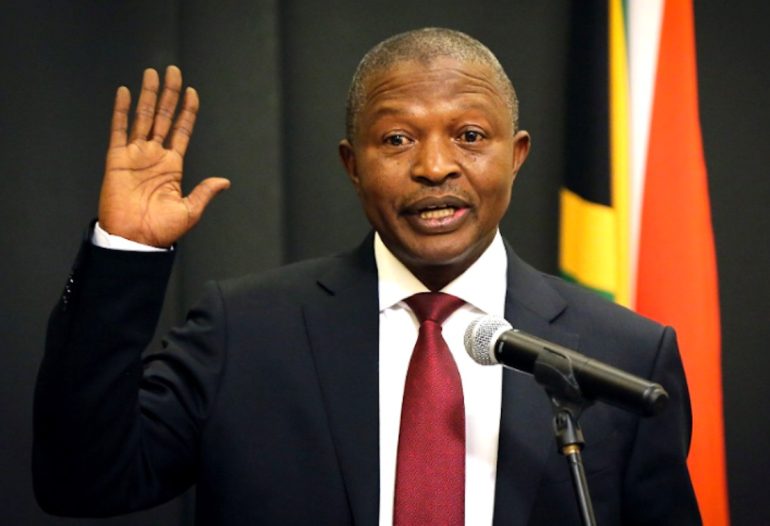Local government elections promise to be fascinating
By Dr Sithembile Mbete
It’s confirmed, South Africa’s local government elections will happen in 2021. This follows months of uncertainty after the Electoral Commission of South Africa (IEC) applied to the Constitutional Court to postpone the elections to 2022 because of concerns that the COVID-19 pandemic and lockdown restrictions would prevent free and fair elections. On Friday, 3 September the Constitutional Court dismissed the IEC’s application and ruled that the elections must take place in the period from 27 October to 1 November to comply with section 159 of the Constitution.
The Court made the right call. Section 159 of the Constitution states clearly that the terms of municipal councils may not exceed five years and elections must be held within 90 days of the date that a council’s term expires. If it had agreed to a postpone of the elections, the Court would effectively have been suspending this clause of the Constitution. Parliament is the only organ of state empowered to amend the Constitution. In my view, MPs failed in their duties by not initiating a process of constitutional amendment in 2020 to enable the election to be postponed if the COVID-19 pandemic had not subsided. Their failure placed the IEC and the Constitutional Court in the undesirable position of having to balance their constitutional obligations with public health risks.
In its order, the Court declared that the election proclamation of 3 August is ‘unconstitutional, invalid and is set aside’. This is to allow for reopening of voter registration because the IEC was forced to cancel the voter registration weekend scheduled for July when COVID-19 infections started rising in the third wave. The new dates for the voter registration weekend are 18 – 19 September, which will offer all eligible citizens to register at any of the 23,151 voting stations across the country. Registered voters will be able to update their address details so they can vote where they currently reside. This is important because, in local government elections, voters are only permitted to vote in the voting stations where they are registered. The voters roll will close when the new election date is proclaimed on 20 September.
Controversially, the IEC has also decided to re-open candidate registrations. According to the Local Government: Municipal Electoral Act of 2000, the voter registration deadline precedes the deadline for candidates so it follows that there would be a new deadline for candidate registrations. This deadline will be set for after the voter registration weekend. By reopening candidate registrations, the IEC has thrown a lifeline to the ANC which had failed to register candidates in 93 wards and hadn’t registered any PR candidates in the Western Cape and parts of Gauteng, KwaZulu-Natal, and Limpopo. Until the IEC’s decision there was a chance that this would be the first election since 1994 where the ANC wouldn’t be competing nationally. The DA is mounting a court challenge against the IEC for ‘unduly benefitting’ the ANC.
After a rocky start of legal uncertainty, this election period promises to be the most fascinating one since 1994. Candidates and parties will have to find creative ways to execute campaigns within the constraints of time, lockdown regulations and resources. Independent candidates and smaller parties may stand a better chance against a weakened and fractured ANC. If you haven’t done so, register to vote. If you’re registered make sure your registration details are accurate so you can cast your vote where you live. Don’t miss your chance!
Also Read: DA opposes the re-opening of candidate registration by the IEC
Written by: Dohne
Similar posts
MORE ARTICLES

‘How are you 48?’ – Loyiso Bala showers wife Jennifer with birthday love

Former deputy president David Mabuza dies aged 64

WATCH: Sello Maake KaNcube on the stage play ‘Master Herold and the boys’ & the joys of his acting career

Kenyan Supreme Court grants inheritance rights to children born out of wedlock

WATCH: Castrol FastScan Mechanics Meet ups | Randburg
QUICK LINKS
UpComing Shows


The Best T in the City
With T Bose
He has held it down in the world of mid-morning radio with the best music, riveting topics, brilliant mixes and interesting guests. Every weekday, The Best T proves why he is the BEST by connecting to you like only your bro or favourite uncle could. He lets his listeners dictate the songs they want to hear in the ever-popular Top 10 at 10, and his Three Teaspoons never run out. Catch The Best T in the City Mondays to Fridays from 09h00 to 12h00.
close
Feel Good
With Andy Maqondwana
Feel good about feeling good! That's exactly what The Feel-Good show is about. An escape from the negativity that surrounds us, indulging you in good feels. Pass it on to one and all. Spread the good feeling around Gauteng with Andy Maqondwana.
close
The Hive
With Bonolo "Bee Sting" Molosiwa
Every "Hive" needs a Queen B and Bonolo "Bee Sting" Molosiwa is Kaya 959's honey who brings in the money. With her bubbly personality, infectious laugh, Bee Sting radiates positive energy which is all you need to get your weekend off to the best start. Don't miss the Afrobeat Dancehall Ragga (ADR) Top 10 on The Hive with Bee Sting every Saturday from 18h00 - 21h00.
close
Connect with Kaya 959
DownLoad Our Mobile App
© 2025 Kaya 959 | On The Street On The Air










